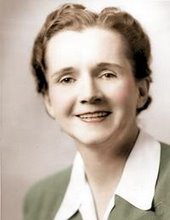 The Sense of Wonder
The Sense of Wonderby Rachel Carson
Moderator: Tom Schaefer, educator and historian
Reading and Essay Schedule:
The Sense of Wonder is a lovely, short little book that can easily be read in one sitting. It surely is not necessary to set up a formal reading schedule for this lovely testimony of Rachel’s thoughts about her experiences with her nephew Roger Christie. Discussion will focus on a quote from The Sense of Wonder posted each week the remarks by this month's moderator.
Week One: "If a child is to keep alive his sense of wonder…he needs the companionship of at least one adult who can share it, rediscovering with him the joy, excitement and mystery of the world we live in.” Posted November 1
Week Two: "If the moon is full...then the way is open for another adventure with your child... The sport of watching migrating birds across the face of the moon has become popular and even scientifically important in recent years, and it is a good way as I know to give an older child a sense of the mystery of migration." Posted November 12
Week Three: "If I had influence with the good fairy..., I should ask that her gift to each child in the world be a sense of wonder so indestructible that it would last throughout life, as an unfailing antidote to boredom and disenchantments of later years, the sterile preoccupation with things that are artificial, the alienation from the sources of our strength." Posted November 26
Week Four: TBD. Posted November 29
















